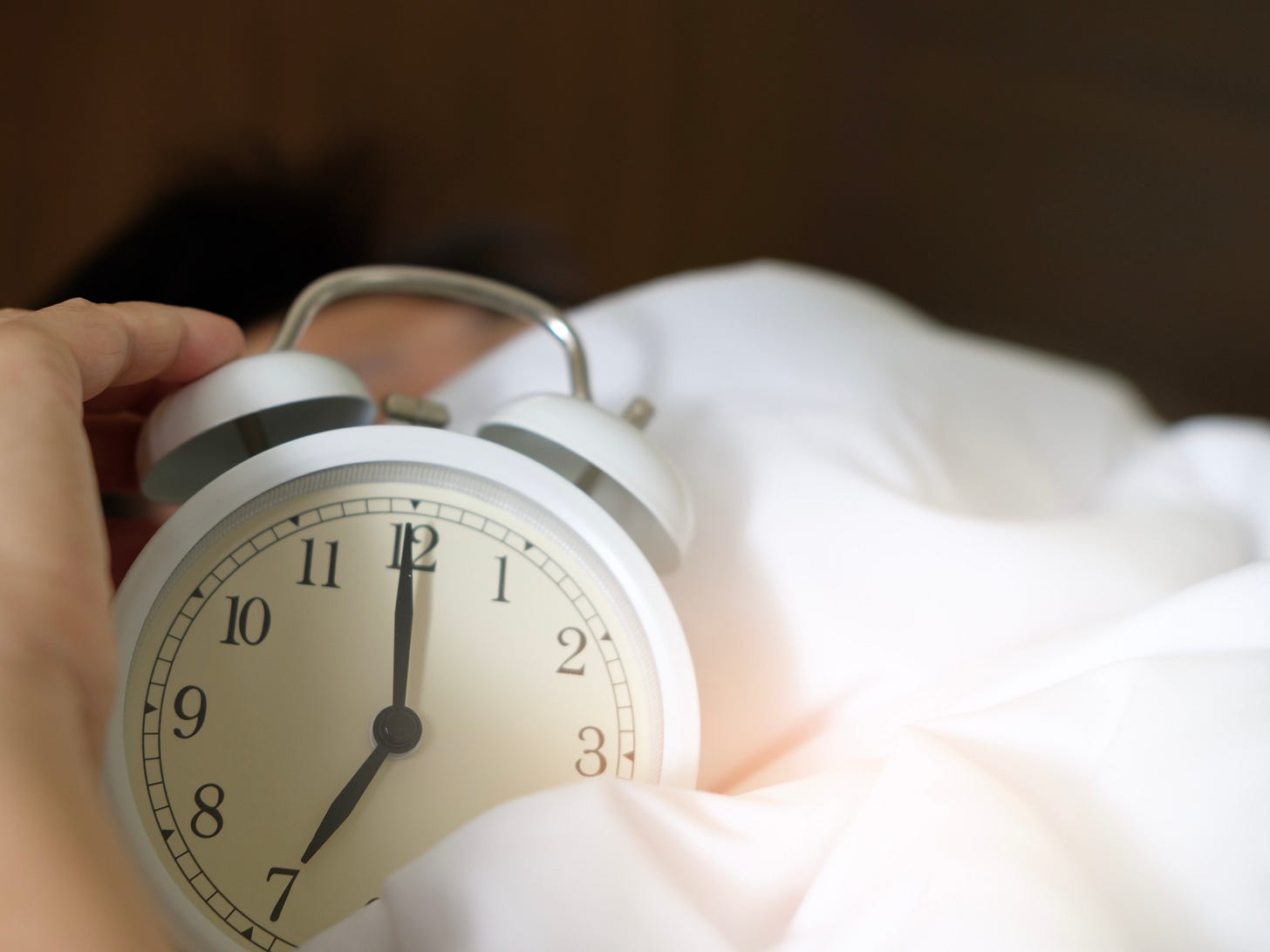Why and how to build the single most important sleep habit
If we want to sleep well at night and be at our best each day throughout the week, sleeping in on weekends is a terrible idea.
Why is that? Our circadian rhythm is guided by our wake-up time rather than our bedtime. As a result, irregular wake-up times – most notably sleeping in on the weekend – produce symptoms similar to what jetlag feels like.
That’s why sleep scientists also call this phenomenon social jetlag: As a result of just one or two days of sleeping in, we’re tired at awkward times throughout our days and have difficulties falling asleep in the evenings for the rest of the week.
Social jetlag is one of the biggest obstacles to getting sufficient deep sleep. Adding to the problem, most of us go to bed at the same time each day and vary our wake-up time based on how we feel when we wake up. As it turns out, that’s precisely the opposite of what we should do.
As Prof. Matthew Walker has put it, “regularity is king”. The best way to ensure sufficient deep sleep in the first half of the night is to wake up and go to bed at the same time throughout the week, including on weekends. Here’s how to pull that off:
Find your regular wake-up time
Think about the last four weeks of your life. Then, without considering irregular activities like catching a red-eye flight, determine the earliest time you had to get up. Et voilà, that time is your regular wake-up time. For me, it’s 6 am.
Sleep for five 90-minute cycles
Sleep in multiples of 90 minutes to avoid sleep inertia. For the benefits of both deep sleep and other stages of sleep, go for five of these cycles (or 7.5 hours). If you need to work late or want to stay awake longer for other reasons, don’t worry about doing so occasionally – but still try to go for at least four cycles (or 6.0 hours). I opt for 7.5 hours most nights.Find your regular bedtime
Take your regular wake-up time and subtract the number of hours that you want to sleep. On top of that, subtract the time it usually takes you to fall asleep. For most of us, that’s between 5 and 15 minutes. The result of that calculation is your regular bedtime. For me, that’s 10.20 pm (06.00 am - 7.5 hours - 10 minutes).
Then, set your alarm to your regular wake-up time on each day of the week. Maintain that wake-up time on the weekends without deviating more than 15 minutes. If that’s too challenging, continue reading.
Pro tip:
If you ate a late dinner, had a bad night’s sleep, or want to sleep in for whatever other reason, here’s how to prevent social jetlag regardless:
Get up at your regular wake-up time, drink a glass of water, and grab a snack – for example, an apple.
Go on the balcony or open the window to get some sunlight into your eyes while having that snack. If it’s dark outside, turn on some bright overhead lights instead.
Go back to your bed and sleep as long as you want.
That approach works by using light and eating, the two most powerful synchronizers of our circadian rhythm, to shift your brain to day mode. Getting some water, food and light right after your regular wake-up time will signal to your circadian clock that the night is over. As a result, your brain will interpret subsequent sleep as a power nap – even if this nap takes a couple of hours. That way, you can sleep in without disrupting your circadian rhythm and falling prey to social jetlag. Sweet dreams!
If you liked this post, please share it with others:
Until next week,
Christian


